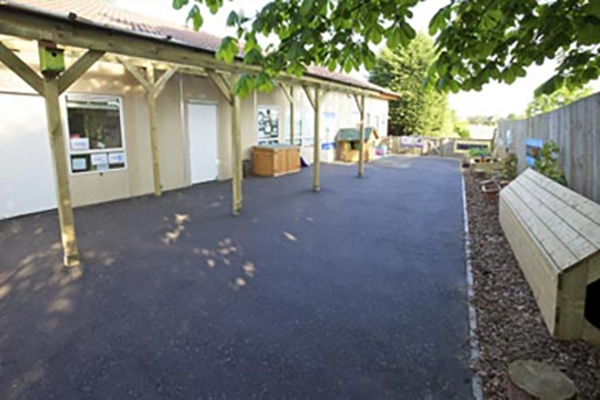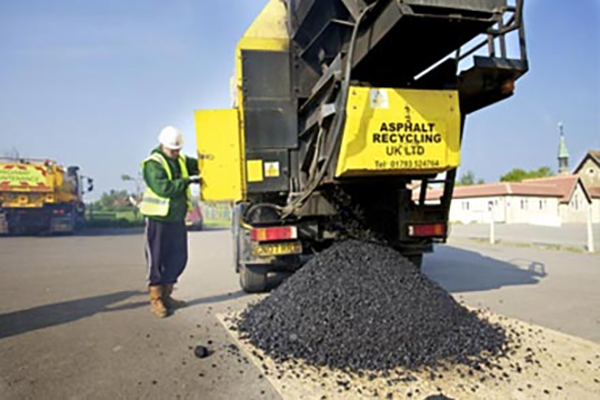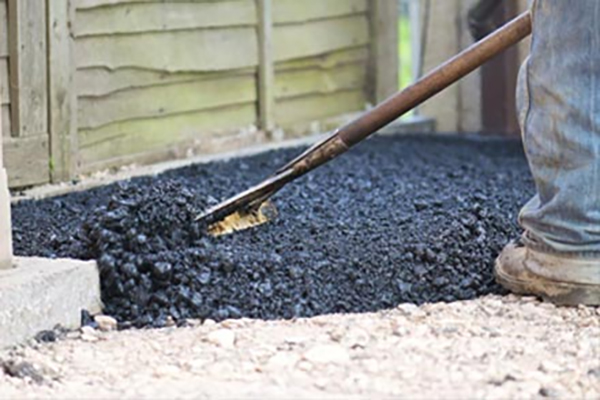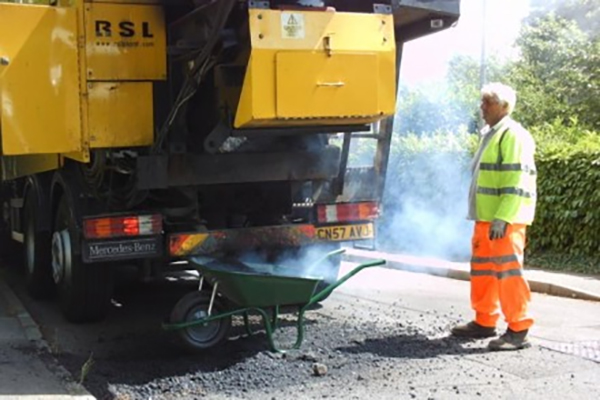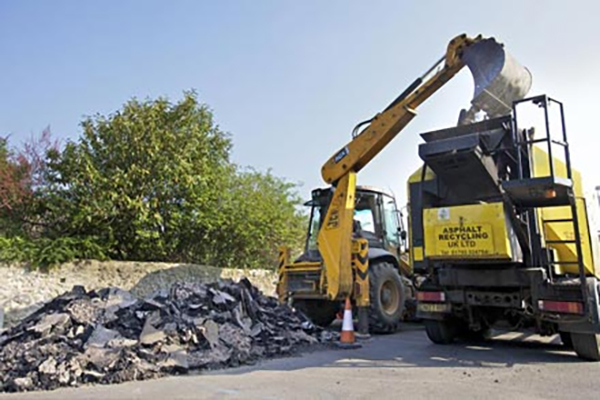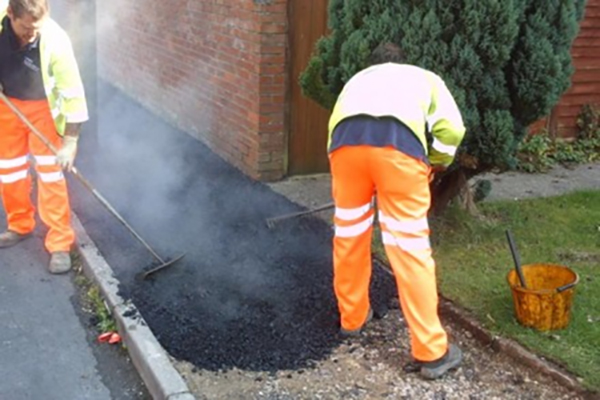Telephone
Click to view
Mobile
Click to view
Website
Contact
Mr Mark Gibbs
Email
Address
2 Castle Hill
Burytown Lane
Burytown Lane
Swindon
Wiltshire
SN26 7DQ
About Asphalt Recycling
Asphalt Recycling UK Limited is a company that provides local councils and maintenance term contractors etc, with a solution to recycling their waste asphalt into premium hot mix asphalt.
We hire or lease mobile & static Asphalt Recyclers providing a service alongside sales and advice on our range of additives & rejuvenators. We also undertake surfacing work and associated civils.
Asphalt Recycling offers up to date technical advice to architects and surveyors on specifications for Tarmac surfaces eg. Industrial and HGV.
We can undertake surfacing work, Hand lay and Machine lay, and associated civils for:
Environment
As the volume of waste and by-product materials are generated in our society and the cost of disposal continues to increase, there is increased pressure to recover and recycle materials. Non renewable natural resources such as aggregate and bitumen are preserved when recycled 100% into a high value premium hot mix asphalt. Generally waste asphalt is either crushed and reused as a low value secondary aggregate into a sub base, which results in a loss of non renewable bitumen coated aggregate, or its usually land filled.
On-going research and development..
Over the past five years we have been undergoing separate research and development for the remediation of hazardous Coal Tar waste
Rejuvenators & Additives
Additive: VOC emission suppressant (Volatile Organic Compounds)
During its original lifecycle Asphalt may have come into contact with rubber, oils, resins, road markings etc. When the reheating of waste asphalt takes place emissions from the organic & inorganic compounds are released sometimes creating an acrid odour. Independent Test Results demonstrated that no volatile components were detected in the treated sample, whilst in the untreated sample increasing higher molecular weight hydrocarbons were found as volatile components.
The suppressant had reduced the volatile emission to a level below the detection limit of the instrument. The product is effective against both organic and inorganic odours. It is non toxic, non hazardous & biodegradable. It contains no harmful VOCs and is safe for both humans and the environment.
Rejuvenators
Most of the binder about 4-7% is still contained in the original material. By adding approx 1-2 litres of rejuvenating oil or 1kg of rejuvenating wax (depending on proven binder content) to 1 tonne of old or contaminated asphalt will replace oils that have dissipated or oxidised from its original form reversing the aging effect.
Coal Tar Bound Material
Coal tar was widely used up until the mid 1970’s and is most likely to be found in the underlying base in highways or sometimes found in some surface dressings until mid 1980’s and fuel resistant surfacing. All materials would need to be tested prior to recycling to ensure no presence of coal tar, polycyclic aromatic hydrocarbons (PAHs) – ‘not to be reheated’. A simple on site method can detect if coal tar is less than 150ppm, and or laboratory test to confirm measurement.
We hire or lease mobile & static Asphalt Recyclers providing a service alongside sales and advice on our range of additives & rejuvenators. We also undertake surfacing work and associated civils.
- Financial Savings
- CO2 reduction
- 100% Asphalt Recycling
- A fully sustainable solution
Asphalt Recycling offers up to date technical advice to architects and surveyors on specifications for Tarmac surfaces eg. Industrial and HGV.
We can undertake surfacing work, Hand lay and Machine lay, and associated civils for:
- Roads
- Footpaths
- Driveways
- Playgrounds
- Car parks
Environment
As the volume of waste and by-product materials are generated in our society and the cost of disposal continues to increase, there is increased pressure to recover and recycle materials. Non renewable natural resources such as aggregate and bitumen are preserved when recycled 100% into a high value premium hot mix asphalt. Generally waste asphalt is either crushed and reused as a low value secondary aggregate into a sub base, which results in a loss of non renewable bitumen coated aggregate, or its usually land filled.
On-going research and development..
Over the past five years we have been undergoing separate research and development for the remediation of hazardous Coal Tar waste
Rejuvenators & Additives
Additive: VOC emission suppressant (Volatile Organic Compounds)
During its original lifecycle Asphalt may have come into contact with rubber, oils, resins, road markings etc. When the reheating of waste asphalt takes place emissions from the organic & inorganic compounds are released sometimes creating an acrid odour. Independent Test Results demonstrated that no volatile components were detected in the treated sample, whilst in the untreated sample increasing higher molecular weight hydrocarbons were found as volatile components.
The suppressant had reduced the volatile emission to a level below the detection limit of the instrument. The product is effective against both organic and inorganic odours. It is non toxic, non hazardous & biodegradable. It contains no harmful VOCs and is safe for both humans and the environment.
Rejuvenators
Most of the binder about 4-7% is still contained in the original material. By adding approx 1-2 litres of rejuvenating oil or 1kg of rejuvenating wax (depending on proven binder content) to 1 tonne of old or contaminated asphalt will replace oils that have dissipated or oxidised from its original form reversing the aging effect.
- Rejuvenating Oil is suitable for footpaths & cycle ways etc.
- Rejuvenating Wax has a stronger effect than the oil and can be used when carrying out minor highway repairs etc.
Coal Tar Bound Material
Coal tar was widely used up until the mid 1970’s and is most likely to be found in the underlying base in highways or sometimes found in some surface dressings until mid 1980’s and fuel resistant surfacing. All materials would need to be tested prior to recycling to ensure no presence of coal tar, polycyclic aromatic hydrocarbons (PAHs) – ‘not to be reheated’. A simple on site method can detect if coal tar is less than 150ppm, and or laboratory test to confirm measurement.
 UK
UK Ireland
Ireland Scotland
Scotland London
London


